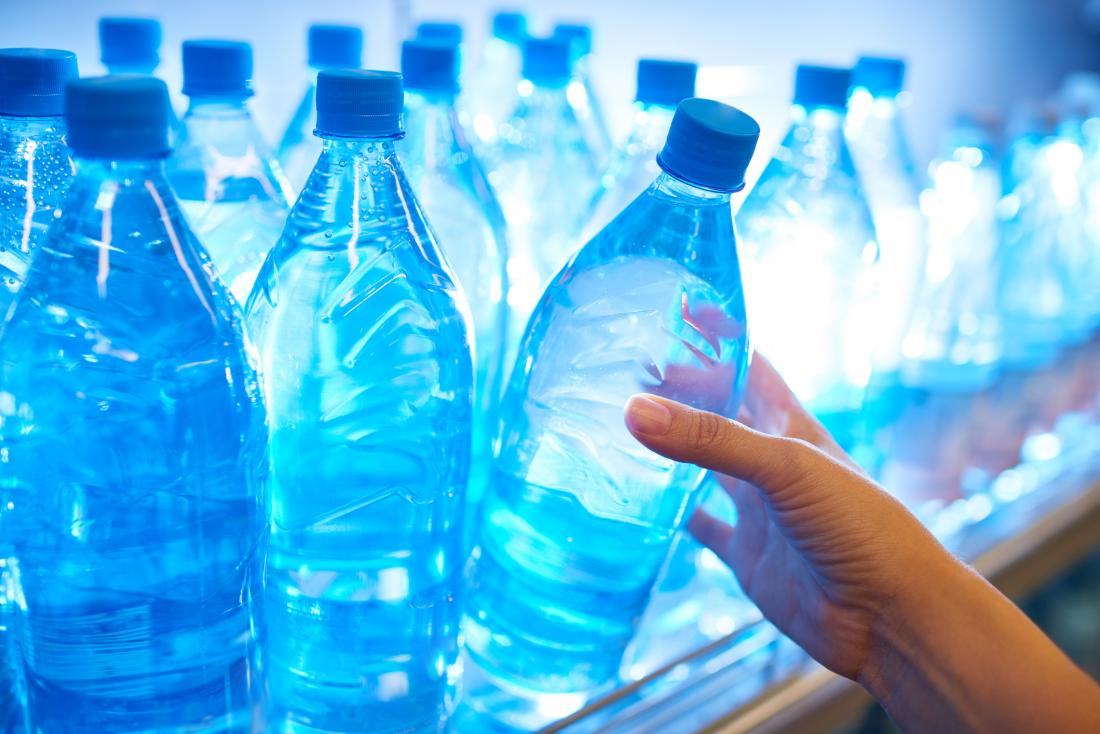A new study has provided further insight into the negative effects of (BPA) endocrine (ie. hormone)-disrupting chemicals. As well as wreaking havoc with your hormones and fertility, BPA exposure can also make you fat by stimulating receptors that are involved in regulating appetite, leading to overeating.
This isn’t a zebrafish. It’s a puffer fish and it isn’t actually fat.
BPA Fish Study
A new study in the Journal of Hazardous Materials has shown that exposure to BPA, a ubiquitous endocrine disruptor found in plastics, makes zebrafish increase their food intake and put on weight. Endocrine disruptors are now to be found in significant concentrations throughout the global environment, including in drinking water and even the air, and are being blamed for a collapse in fertility that could potentially threaten the future of the human race.
While we’ve already written at length about the hormone-disrupting effects of xenoestrogenic chemicals like BPA and pthalates, this latest study reveals that the negative effects of BPA exposure are not limited to mimicry of the female hormone estrogen.
The effects of exposure to BPA and TBBPA, another similar compound, were examined in the case of zebrafish, through a variety of analytical methods. The researchers found that exposure to these chemicals at levels now commonly found in the environment was enough to induce hyperphagia (overeating) and obesity in adult males.
Now this actually is a zebrafish, and by the looks of it this fish is in pretty good shape
Furthermore, the fish exposed also developed lipid accumulation in the liver (fatty liver). In humans, fatty liver is linked to obesity, diabetes and other forms of disorder characterised by insulin resistance.
After genetic analysis, the researchers concluded that the chemicals were having these effects through activating the CB1 cannabinoid gene.
Interestingly enough, the cannabinoid receptors are also stimulated by consumption of omega-6-rich vegetable oils, as we discussed in a recent article on why you should be eating butter. The cannabinoid receptors play an extremely important role in governing appetite, and their stimulation by compounds derived from omega-6 fats (endocannabanoids) is thought to be one of many reasons why our current modern diet, which has a surfeit of omega-6, is doing us such harm.
In a lab experiment, mice were fed different kinds of fat. Two groups of mice were given different amounts of linoleic acid, a polyunsaturated omega-6 fatty acid that makes up a large percentage of soya, maize and sunflower oils. A third group was put on a diet with a high content of omega-6 that also contained a certain amount of marine omega-3. The results showed that the group given the diet with the most omega-6 ate more and gained considerably more weight than the group on the low-omega-6 diet.
Although this new research took place in an aquatic setting, there’s good reason to believe that the effects would be replicated in humans – that exposure to BPA and TBBPA could induce overeating and weight gain in us too. The estrogenic effects of BPA and other xenoestrogens are experienced by both animals and humans alike.
Frogs, reptiles and fish have suffered heavily from the estrogenic effects
of chemical residue in water
Given the severity of those estrogenic effects – which can in high enough doses amount to chemical castration – you should already be thinking about reducing your exposure to endocrine-disruptors, without the need for further persuasion.
Note, though, that in the modern world there is probably no escaping these substances totally. Microplastics, a known vector for them, have been shown to be present in the most remote places on earth, circulating through the global environment like a force of nature.
Microplastics are now circulating on air currents and can reach places humans have never been.
While that may be so, reducing your exposure as much as possible can go a very long way towards healing your poisoned body and restoring you to prime health. Here are some simple tips to help:
- Install a reverse osmosis water filter with an activated carbon filter for your drinking water
- Choose organic, locally grown, seasonal food
- Always wash properly and peel fruit and vegetables that are non-organic
- Buy the highest quality meat and dairy products you can: aim for local, organic, pasture-raised products
- Reduce your reliance on plastics, including water bottles, canned foods, non-stick cookware and plastic wrappings
Clearly, this may involve a serious change to habits and some expense, but take it from us: the immediate cost will be far less than the cost of slow-burning chemical castration – not just for you but for the generations that come after you as well.

Don’t hesitate to email us at [email protected] for personalized coaching and a client questionnaire if you’d like DEDICATED tailor-made personal training on strength training, building muscle, losing fat, developing athleticism, and more — all to your liking, lifestyle, habits, and taste!
Otherwise, don’t forget to claim your FREE eBook detailing how to lose 20lb of fat while building muscle in 12 weeks! You can claim it here.
Alternatively, you can pick up a FREE eBook on fundamental strength principles offering an introductory workout program.












